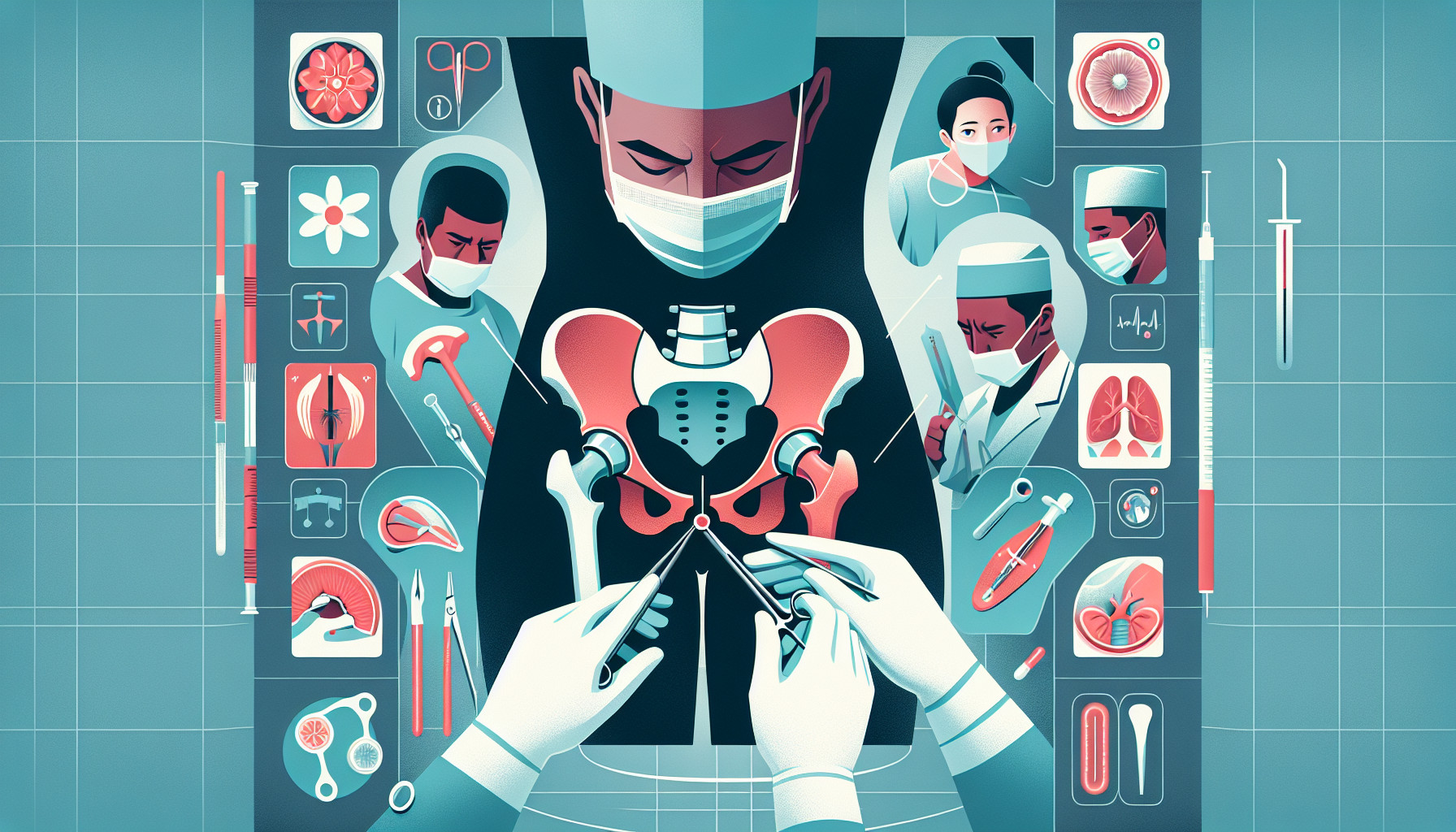Our Summary
This study compared two types of surgeries used to treat severe hip fractures in individuals aged 55 to 65: internal fixation (using screws to hold the bone together) and total hip replacement. Between 2016 and 2020, 86 patients with this type of fracture were split into two groups based on the surgery they received. The researchers then compared the number of follow-up surgeries needed, the incidence of deep infection, the functionality of the hip post-surgery, the level of pain experienced, and patient-reported outcomes.
The results showed no significant difference between the two surgery types in terms of infection rate, hip functionality, and pain levels. However, those who underwent internal fixation were more likely to need another operation and reported lower functionality in their everyday life compared to those who had a total hip replacement. Therefore, while both surgeries were effective in the short and medium term, total hip replacement seemed to produce slightly better results.
FAQs
- What were the two types of surgeries compared in the study for treating severe hip fractures?
- What were the factors compared between internal fixation and total hip replacement surgeries?
- Did the study find any significant differences in outcomes between internal fixation and total hip replacement?
Doctor’s Tip
A helpful tip a doctor might tell a patient about hip replacement is to consider opting for a total hip replacement rather than internal fixation for severe hip fractures in order to potentially reduce the need for additional surgeries and improve overall functionality in the long term. It is important to discuss all treatment options with your doctor to determine the best course of action for your individual situation.
Suitable For
Patients who are typically recommended for hip replacement surgery are those who have severe hip fractures that cannot be effectively treated with conservative measures or less invasive surgeries. This includes individuals who are experiencing severe pain, limited mobility, and reduced quality of life due to their hip condition. Additionally, patients who have tried other treatments such as physical therapy, medications, or injections without success may also be good candidates for hip replacement surgery. It is important for patients to discuss their specific situation with their healthcare provider to determine if hip replacement is the best option for them.
Timeline
Before hip replacement surgery:
- Patient experiences severe hip pain, limited mobility, and difficulty performing daily activities
- Patient consults with orthopedic surgeon and undergoes pre-operative tests and evaluations
- Patient receives pre-operative instructions and prepares for surgery, including making necessary arrangements for post-operative care and recovery
After hip replacement surgery:
- Patient undergoes surgery to replace the damaged hip joint with an artificial implant
- Patient stays in the hospital for a few days for monitoring and rehabilitation
- Patient follows a post-operative care plan, including physical therapy and pain management
- Patient gradually regains mobility and experiences reduced pain in the hip joint
- Patient undergoes follow-up appointments to monitor healing and progress
- Patient can eventually return to normal activities with improved hip function and reduced pain.
What to Ask Your Doctor
What are the risks and benefits of total hip replacement compared to internal fixation for my specific hip fracture?
How long is the recovery time for total hip replacement compared to internal fixation?
What type of rehabilitation or physical therapy will I need after total hip replacement surgery?
How long can I expect the hip replacement to last before needing another surgery?
What is the success rate of total hip replacement surgery for individuals in my age group?
What factors should I consider when deciding between total hip replacement and internal fixation for my hip fracture?
Are there any alternative treatment options to consider besides total hip replacement or internal fixation?
What is the expected level of pain after total hip replacement surgery, and how is it managed?
How will my mobility and daily activities be affected after total hip replacement surgery?
What are the long-term implications and potential complications of total hip replacement surgery for someone in my age group?
Reference
Authors: Wang ZY, Luo F, Zhang YQ, Liu J, Zhu XZ, Rao ZT. Journal: Zhongguo Gu Shang. 2023 Mar 25;36(3):232-5. doi: 10.12200/j.issn.1003-0034.2023.03.007. PMID: 36946014
